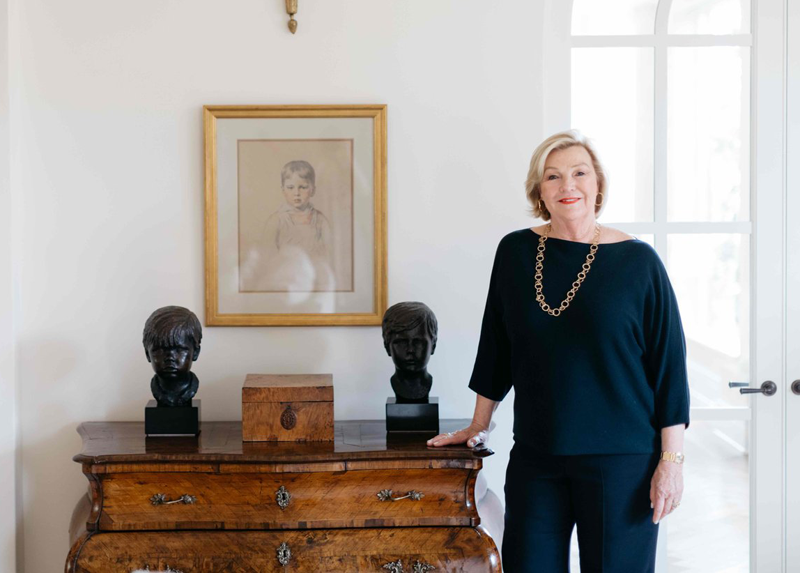Q&A: PURE Insurance President and CEO Ross Buchmueller
August 19, 2011
After starting American International Group Inc.'s private client group in 1999, Ross Buchmueller used his experience insuring high-value property to help found PURE Risk Management LLC.
Now the president and CEO of PURE Insurance Co., he is overseeing the young mutual insurer's expansion amid an unpredictable economy and difficult insurance market. At the National Association of Mutual Insurance Companies Convention in Indianapolis, Buchmueller sat down with SNL for an exclusive interview.
The following is an edited transcript of that conversation.
SNL Financial: This has been a challenging year in general for the insurance industry, between the severe weather events and broader economic struggles. How is PURE Insurance doing financially, and what is your comfort level with the state of the industry?
Buchmueller: The events of the last several years have not had a huge impact negatively on our business. Sure, we wish investment returns were greater, but being a five-year-old company, we entered the business with a more contemporary view of risk as far as weather, catastrophe models and diversification goals. We have an enormous advantage, and so as we've assembled our membership, we've been fortunate not to deal with the decisions of [legacy] insurance policies that we wrote in the past that we wouldn't have written now. The legacy business is challenging. We would recognize that there are strengths and weaknesses to any organization, but the clean sheet of paper is a huge strength for us.
So there are things that you learned from others' legacy books of business that have helped your current decision-making around the exposure you take on.
Sure, and I think that relates to both the individual selection of risks — who is the ideal member for PURE in this town? — and it also looks at things in the aggregate — how many ideal members would we want in that area? When it comes to high-profile areas of catastrophe exposure like Florida, Long Island and the like, insurance companies have written so much business for so many years that they realize, based upon today's cat models or their own appetite, that they need to reduce the amount of risk they might have in a given area. What helps us is to know that you don't treat coastal capacity as precious when you're full; you treat it as precious when you're starting. That allows you to select very carefully all the way out.
PURE Insurance focuses on the niche of high-value properties and wealthy policyholders. What is the advantage of going after that demographic?
I think that in a lot of businesses, focus and expertise is very important. So the broad thing is that there's an awful lot of value in specialization. Why this area? We understand the unique challenges of delivering claims service to a very demanding group of people. I think we understand the underwriting challenges of how to select and manage risk for unique properties or unique individuals. So I think that it's the obvious section for us.
The other thing is that it's a relatively uncompetitive space. There's a relatively small number of people who are providing insurance to successful families, and increasingly, I think that their offerings look like one another. So we felt that with our expertise and this focus on a narrow niche, and delivering with a unique proposition — in this case allowing people to become members of the company rather than simply policyholders in a stock company — we would really serve everyone well.
It seems that this high-wealth demographic might be more of a steady, more predictable group of policyholders compared with those of normal P&C companies. Would that be accurate?
That's probably too much of a generalization. I think it is true to say that we often see bigger deductibles, so there is less willingness to put a small claim in. And we have a relatively modest concern for fraud or any inflation of claims because people have earned a reputation and certainly don't want to lose it over a small property loss.
But it's also safe to say that there are many high-profile CEOs and business leaders and wealthy individuals who are extremely demanding. So it would be wrong to suggest that this is an easygoing group of people that's not difficult to keep happy. You have to be prepared to delight policyholders rather than merely meeting expectations.
Do your policyholders try to get more involved in the business then? Are they more vocal about the company's performance?
We encourage people becoming promoters of PURE. When people ask questions of the company and want to learn a little more, we encourage that. I suspect that there are a lot of people who buy insurance with us, and their relationship is no more intimate than with a stock company. But to the degree that we can get a portion of the membership who understands and values the benefits of a policyholder-owned company, we think that'll serve us really well over the long run.
I think what helps us is that we make decisions based on what's in the best interest of the membership rather than any individual member. So that means that if someone had made a lot of claims and needed to have their policies not renewed, while we are sensitive to that disruption to that person, our compass points at the membership as a whole rather than each individual member.
What has been your experience with catastrophes this year? Are you taking any large losses?
[Hurricane] Irene will be a significant event. We have a lot of members from North Carolina on up to the Northeast, but it will not be devastating. There's a long way to go in the year, but at the current pace, we would imagine we would continue to grow surplus this year, even with Irene. So it's not the kind of event that would have any effect on capital.
The Texas wildfires, we have not had claims, but are keeping a very close eye on that. We have a significant membership in Alabama, and with the tornadoes that came through earlier this year, we were fortunate not to have any of our members affected. I think we've been fortunate more than anything else, but Irene was right in one of our strong areas, and we're actively helping members clean up.
The high number of catastrophes this year has persuaded some insurers to start planning for these kinds of losses every year, while others have written it off as an abnormal occurrence. Where do you fall on that spectrum?
We always evaluate what we think our expected budget for catastrophe losses would be. Our first member was in Florida, so this was a business that was geared around a pretty good understanding of catastrophe risk in a 21st-century context. Certainly, we're sensitive to the idea of making sure that our premiums are reflective of what we think is a likely outcome. But I don't think anything has changed, in part because we had a very contemporary view.
The insurance industry is stuck in a soft market, has been hit by large catastrophe losses and is unlikely to see new money yields improve. For some, there has been a need to raise rates to offset these issues. Is PURE Insurance in that same boat?
We're in the same boat inasmuch as our investment yields aren't going to be any better than the next person. That puts the pressure on underwriting to be strong, and then therefore rates to be adequate. Where I think we are different is that the soft market is often defined by robust competition that is driving prices lower. Our market happens to be a narrow subset of the overall P&C market that has not experienced that same level of competition. All the other factors, catastrophes, the need for investment returns, all of these things might drive prices up in some cases. But what we're not facing is competition driving prices down.
Are you aware of other companies that are looking to get into the high-wealth niche?
I started a company for AIG at a point in time when there was even less competition, and they've continued to run quite well. But since then, maybe it's gone from a market of one or two to a market of four or five, so it hasn't got to the point where it's got the same scope as a lot of competitive markets. There is a recognized need for more capacity in the coastal areas. A few companies can't absorb the entire aggregation of exposure, and our competitors have been very open in saying that the reality is that, for as long as people are going to live along the coast, there's going to need to be more players.
Florida is a challenging state for insurers, and last year, you announced that the company would have to raise premiums for policyholders there. How has that worked out so far?
For the first four years we were building a business, and as the business diversified, we had hoped that the cost or reinsurance could be appropriately spread across the membership with everybody paying their fair share. It became clear that certain subsets of Florida, particularly those right along the coast, needed to pay a higher premium. It's not fun to raise prices, but we're not talking about doubling or tripling premiums. There will be a few that probably felt it was a significant increase, so I don't want to downplay those that got a bigger increase. But most people were less than 10% or just over 10%. In the grand scheme of things, after five years of stability, that's probably not bad.
You are also in the middle of a planned geographic expansion. Where are you on that, and what's the timeline?
We're licensed in 39 states now, and I believe we're actively accepting members in just under 30 [states], so we're essentially adding two states to the active roster every month. I suspect we'll continue that into the first quarter of next year, gradually building a national membership. Today, somebody who had bought a policy from us in Connecticut or New York who had a home in Jackson Hole, Wyo., we can serve that because we're actively accepting members in Wyoming. So as much as it is the diversification into Western states, it's also the ability to provide more value to members who might have originated back East.
Has there been any thought of expanding through M&A?
I don't think so, no.
Lastly, is there a single large economic concern you have that you are worried could affect your business?
I think that after 2008, we really believed that consumers had become smarter. Were the economy to have any sort of strong rebound, I believe that people will continue to act smarter, and I think that's in our favor if they do. Like every insurance company, I wish the yields on our fixed-income portfolio were better, but I think we're managing based upon the facts in front of us. I don't think we have any naive optimism about what's around the corner, as much as we are hopeful, and right now we're in a very good place, so we're happy where we're at.





